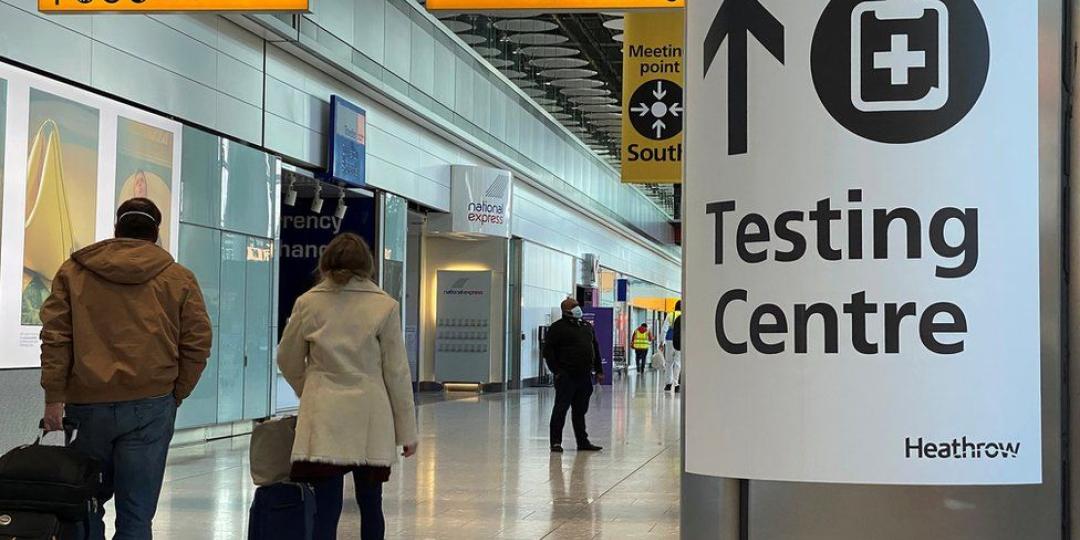The UK Government is treating with contempt people who have signed the petition to remove South Africa from the red list, says David Frost, CEO of the representative body for inbound tourism to South Africa, SATSA.
He was reacting to what SATSA calls the Government’s “boilerplate” response to a UK petition, Remove South Africa from the travel 'Red List'. The petition, supported by SATSA as part of its own campaign to get SA off the red list by October this year, has received over 27 000 signatures to date and represents some of the ±450,000 British passport holders who travel to South Africa in a normal year.
The UK Government said in a statement on Monday (August 23) that South Africa would remain on the red list because it “continues to present a high public health risk to the UK from known variants of concern”.
The statement pointed to reports by the Joint Biosecurity Council, which it claimed provided the evidence on the data it was using. However, according to SATSA, the reports only show data on countries that are moving from one traffic light colour to another, with no data on South Africa.
Frost has, however, reiterated that all the evidence suggests South Africa should be moved to the amber list. The UK Government has repeatedly claimed that the Beta variant (first identified in South Africa) was a variant of concern.
Yet AstraZeneca has formally announced its vaccine provides “good to excellent protection” against it. Moreover, due to Beta’s low transmissibility, it now represents under 4% of cases in South Africa, with over 90% of cases being the Delta variant, the same variant dominant in the UK.
“If it [the UK government] disagrees with recent scientific assessments of South Africa’s safety, it should say why. There are over 1.5 million South Africans whose livelihoods depend on income from tourism. The UK owes these people a better explanation for why it continues to maintain travel restrictions which every day look more and more discriminatory.”
Frost also pointed out that South Africa’s infection rate was tracking well below the UK and several European countries on the amber list. Following the evidence, Germany, France, the Netherlands, Switzerland, the US and China are among those that have all reopened travel to South Africa. The UK’s response looks increasingly anomalous.
Sobering data from WTTC
Meanwhile, a recent study by the World Travel & Tourism Council (WTTC) highlighted that the South African economy could face massive losses of more than R181 million (€10.4m) every week it’s on the UK’s ‘red list’ for travel.
Based on 2019 UK visitor numbers and spending, the global tourism body’s research shows these restrictions, which are deterring Brits from travelling to South Africa, could represent losses of over R790 million (€45.3m) every month, equating to more than R26 million (€1.5m) every day.
WTTC Senior Vice President, Virginia Messina, said: “The impact the UK’s traffic light system imposes on ‘red list’ countries is not only damaging the travel and tourism sector, but also economies around the world. Our data shows that every day South Africa remains on the UK’s ‘red list’, the country faces losing millions of dollars, effectively delaying the global socio-economic recovery.”
She emphasised that in the UK, more than half of all adults had been fully vaccinated, which significantly reduced the risk for any citizens travelling abroad. Whilst the vaccine roll-out in South Africa has picked up pace, the figure is considerably lower than the UK’s.
Messina said it was therefore critical for the South African government to continue ramping up the vaccination programme to restart international travel, and enable the economic recovery as a result.
“Furthermore, we are also encouraging governments of ‘red list’ countries to work closely with their UK counterparts to ensure the very latest data is shared, so the country can be moved from the economically damaging red list, to the amber list as soon as possible,” said Messina.























